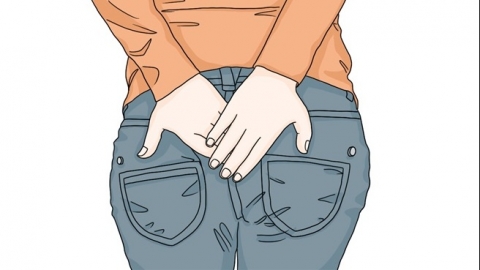What should I do if I have hemorrhoids and notice bleeding during bowel movements?
Bleeding during bowel movements caused by hemorrhoids can be managed through adjusting diet, improving defecation habits, enhancing local care, avoiding triggering factors, and using symptomatic medications. Most mild cases of bleeding can be relieved with conservative treatment. If bleeding occurs frequently, is heavy, or accompanied by abdominal pain or mucus in the stool, prompt medical attention is recommended.
1. Adjust diet: Increase dietary fiber intake by consuming more celery, spinach, apples, oats, etc., and drink plenty of water to keep stools soft. This reduces friction and irritation on hemorrhoids during bowel movements, thereby alleviating bleeding.
2. Improve bowel habits: Avoid prolonged sitting on the toilet; limit defecation time to within 5 minutes. Do not use mobile phones or read during bowel movements to prevent increased abdominal pressure that may worsen bleeding. Respond promptly to the urge to defecate and avoid holding in stool, which can lead to hard, dry stools.

3. Enhance local care: After bowel movements, clean the anal area with warm water. Avoid wiping with rough toilet paper; instead, use gentle wet wipes or take sitz baths for 10–15 minutes each time to improve blood circulation around the anus and reduce inflammation and bleeding.
4. Avoid triggering factors: Reduce prolonged sitting or standing. Engage in moderate physical activity such as walking or jogging to promote blood return in the anal region. Avoid alcohol and spicy, irritating foods to prevent congestion of hemorrhoids and worsening of bleeding.
5. Use symptomatic medications: Apply topical hemorrhoid suppositories or ointments—such as those containing hemostatic ingredients—which act directly on the bleeding site to stop bleeding and reduce swelling. Oral hemostatic drugs may be used when necessary under a doctor’s guidance.
In daily life, choose soft, breathable cotton underwear and change it regularly to keep the anal area clean and dry. Avoid lifting heavy objects or engaging in strenuous exercise to minimize sudden increases in abdominal pressure. Maintain a regular sleep schedule and avoid staying up late to support stable metabolism and aid recovery from hemorrhoids.




